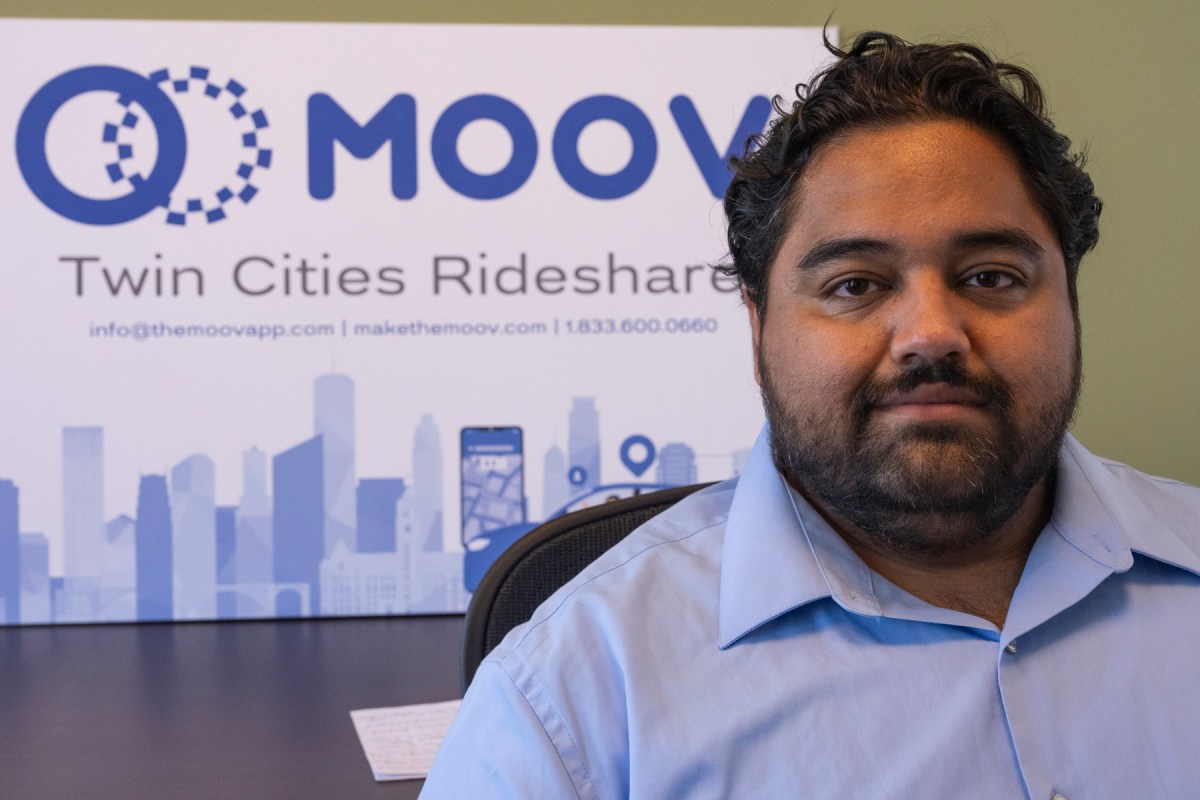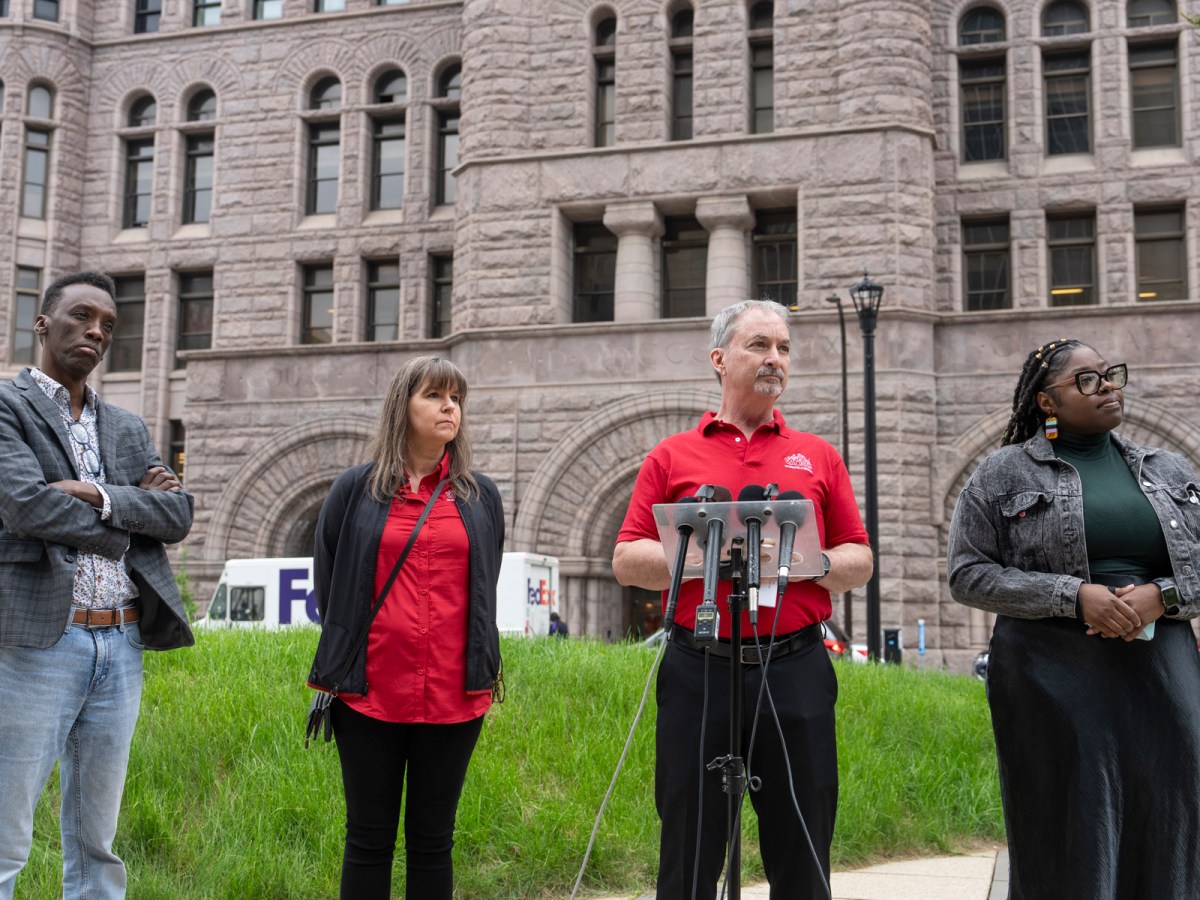Three alternative rideshare companies are approved to operate in Minneapolis, and are eyeing a mid-May launch as state lawmakers announce an agreement on compensation rates for drivers.
More than 10 rideshare companies expressed interest in entering the local market when rideshare giants Uber and Lyft said they would cease operations in the city as a result of a new Minneapolis ordinance increasing wages for drivers.
The local debate on how to pay rideshare drivers took another turn Monday when state lawmakers announced that they had agreed on a new payment formula that would be included in a rideshare bill. The proposed bill cleared a committee Tuesday, and is headed to another committee for approval.
The legislation calls for paying drivers $1.27 per mile and 49 cents per minute. The Minneapolis ordinance would pay drivers $1.40 per mile and 51 cents per minute, or $5, whichever is higher, for the time they spend transporting a rider within city limits.
Monday’s announcement prompted Lyft to expand its threat to leave Minneapolis to the entire state, and caused Uber to express disappointment with the Legislature.
“Rides would become unaffordable for most across the state, not just in Minneapolis, and drivers would earn even less,” Lyft spokesman CJ Macklin said in a written statement. “It would make the service unsustainable in Minnesota and we would be forced to shut down throughout the state, should it pass.”
The rideshare companies looking to replace Uber and Lyft are Moov, Wridz and MyWeels, which received Minneapolis’ approval to operate in the city. Joiryde also applied for a license, but hasn’t been approved.
“I’m very happy. I think we’re one of the first ones they’ve approved,” said Elam Baer, owner of MyWeels.
The push to get approved began after the Minneapolis City Council passed a controversial ordinance in March to increase wages and improve benefits for rideshare drivers in the city starting May 1. Uber threatened to pull out of the entire metro and Lyft said it would stop operating in Minneapolis.
The City Council then voted in April to push back the ordinance’s implementation date to July 1 in order to allow more time for alternative services to get up and running, and to give state legislators more time to craft their bill.
Moov was the first company to apply for a license. Owner Murid Amini signed the application on March 16. Amini told Sahan Journal his company still needs to turn in the appropriate fees and insurance certificates to complete the process.
“We’re working to close in on some funding,” Amini said.
To apply for a transportation license with the city, a company needs to fill out an application, and pay an application fee of $37,145 and a wheelchair surcharge fee of $10,615, according to the city’s website.
Applicants must also provide a certificate of liability insurance. The state of Minnesota requires rideshare companies to hold $1.5 million in liability insurance.
Moov, which is based in St. Paul, is trying to raise $250,000 via GoFundMe so it can operate in Minneapolis, and had raised $625 by May 7.
Moov is starting to conduct background checks on more than 600 drivers who have signed up with the company, Amini said.
Amini said he’s also trying to get approval to operate at the Minneapolis- St. Paul International Airport and the city of St. Paul, but said St. Paul won’t consider his application until he pays its fees.
MyWeels is based in St. Paul and is owned by Elam Baer, who said he’s paid all of the necessary fees to begin operation. Baer also said he’s working on getting approval to operate at the airport.
Baer said he has more than 50 drivers signed up, and is being cautious about recruiting more until business picks up.
“Saying you have 400 drivers doesn’t do anything if you don’t have any customers,” he said. “And we want to make sure that when the driver comes on, he actually gets some business from us.”
The MyWeels app is available for download in the Apple Store, and will soon be available for Android users as well, according to Baer. Moov will be available in the Apple Store and Google Play Store in the following weeks, according to Amini.
Baer said MyWeels drivers would conduct test runs this week, and that the general public launch will occur soon afterwards. MyWeels’’ plans won’t be impacted by Uber or Lyft, he added.
“It’s gonna be interesting to see if Uber and Lyft follow through on their threat to leave,” Baer said. “We’re going to be here without notice if they do or not.”
Steve Wright, the owner of Wridz, was hoping to get his approval to operate in Minneapolis “any day now,” when he first talked to Sahan Journal. He was approved on Wednesday. Wright turned in his application to the city on March 28.
related sTORIES
Wridz, which is based out of Austin, Texas, operates in nine states and will soon begin recruiting drivers in Minneapolis. Wright said the tentative goal is to launch in Minneapolis the week of May 12 with 1,000 drivers.
Until the Minneapolis ordinance goes into effect, he said, Wridz will have to figure out a pricing structure that strikes a “happy medium” between the ordinance and what Uber and Lyft are paying.
“Obviously, the passengers are gonna stay with whatever’s cheapest,” Wright said.
Representatives for Joiryde, which submitted an application for a transportation license on March 29, did not return messages seeking comment. The company’s application listed a North Carolina address for its CEO and founder, David Linhardt. The application did not list a local contact or business address as required.
Council members support rideshare bill
Two of the authors of Minneapolis’ ordinance, Council Members Robin Wonsley and Jason Chavez, said they’re supportive of the new legislation that came about through collaboration between state and city governments.
“This collaboration between leadership of the Senate, House, and City Council, along with the policy’s authors, has led to this huge win for ride-share drivers across Minnesota,” said Minneapolis City Council President Elliott Payne, adding that he was “thrilled” with the results.
Uber spokesman Josh Gold said he was disappointed that some legislators were allowing the City Council to impact their decision-making process. The Legislature initially passed a rideshare bill in May 2023 improving wages and benefits, but it was vetoed by Governor Tim Walz. The governor, who said he supported better wages, then assembled a task force to help lawmakers craft a new bill.
“We’ve made a serious offer and hope we can still work with the Governor and legislature on a statewide solution that allows rideshare to remain in the state,” Gold said.
Meanwhile, discussions at the Legislature continued into Tuesday during a House Labor and Industry Finance and Policy Committee meeting.
Uber and Lyft representatives told committee members Tuesday they did not agree with the new compensation rate, and that they were not involved in discussions leading up to lawmakers’ agreement on the bill.
“The rate that is in the [amended bill] at $1.27 [a mile] is just not supportable economically,” said Joel Carlson, an Uber representative.
The committee passed the bill, which is being sponsored by DFL Representative Hodan Hassan, on an 8-4 vote, and referred it to the House Ways and Means Committee. The House and Senate must later approve the bill in order for it to reach Walz’s desk for approval.
It’s unknown if Walz would support the current bill. State Labor Commissioner Nicole Blissenbach was asked Tuesday about Walz’s stance on the bill, and said he supports “a minimum compensation that is supported by the study.”
The 2024 legislative session ends May 20.






